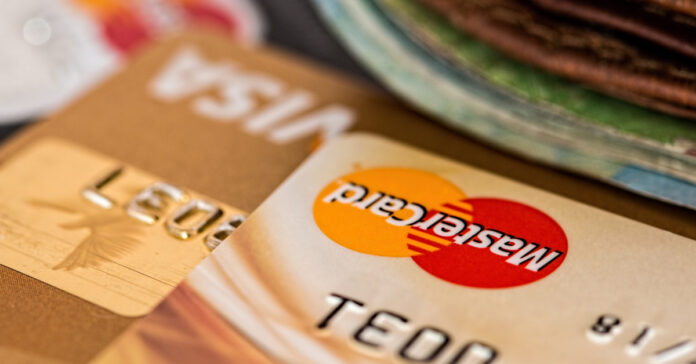On Thursday, March 16, James Wesley, Rawles (JWR), published on Survival Blog a list of 15 things preppers should do to get ready for the possible collapse of the banking system in Europe and the U.S. I recommend you read it as it is a useful list. If you’ve been following my writings here, I would hope you have already taken most of these steps.
I am happy to report that I could check off everything on the list except cleaning out my safe deposit box, prepaying our bills, and liquidating our investment portfolio. How far along are you on this list?
If you are already well prepared, number 12 is the most important. For example, I asked my youngest daughter if she had been following the bank failures, and she said, “Yeah, sort of. I read an article on Monday.”
I said, “Do you remember what was one sign it was time to bug out?”
“Yeah, when they close all the banks. But we’re not there yet.”
“No, but we may be soon.” I told her to leave town if they shut down the EBT card system or stopped people from using credit cards.
Cleaning out the Safe Deposit Box
Most of the items in our safe deposit box are documents like insurance policies, marriage certificates, car titles, deeds, and other items of that nature. I don’t see a real value in moving these items home. I already have printed and electronic copies at the house. Why put all my eggs in one basket? If the Feds come and search the boxes looking for cash or other items of monetary value to help bail out the banks, they’ll be out of luck. I just hope they lock up when they are done.
Years ago, I kept a gun in there, but I stopped after we moved. I am not a spy who will stop by his safe deposit box to pick up his new identity, stacks of cash, and a pistol on his way to a secret mission. Storing those items might make sense if I had a safe deposit box in another city two or three states away, but I think such a move lacks value when it is in the closest town.
Pre-Paying Your Bills
The characters in JWR’s first book Patriots pre-paid their property insurance and some other bills before the collapse, so this recommendation does not surprise me.
Having decades of experience paying bills (sigh), I can assure you from personal experience that utilities will credit you with any excess payments you make. If you want to pre-pay your utility bills, send them two checks a few days apart this month. Or, make an electronic payment and send a check. These payments are automatically processed, the funds credited to your account, and the total reflected on your next bill. If any human notices, they will assume you have made a mistake and will credit your payment rather than return the extra funds.
You have to be careful about pre-paying when it comes to any accounts on which you owe a balance and are accumulating interest, such as you your credit card bills, car payment, and mortgage. If you pay extra on your credit card, they will put it against your outstanding balance and you will still get a bill next month. Any extra you pay on your mortgage will also be applied to your principal and you will need to make your full payment the following month. Cars loans are the same.
In these cases, your best bet may be to schedule an online payment through your bank using your normal online payment processes. You could also mail them a check when the bill is due. If they get the check and can’t cash it, that is hardly your fault; you’ve made a good faith effort to pay them. In the event of a lengthy bank holiday in which payments are not being processed, I doubt companies are going to be repossessing cars or starting foreclosures.
Cash on Hand
That said, I would keep cash on hand sufficient to pay rent, especially if you are a renter who pays an individual rather than a corporation. Just be sure to get a written receipt when you pay for anything in cash.
The real value of your extra cash is not to pay the phone bill or the car payment, but to pay for day-to-day living expenses like gasoline and groceries.
This is where your relationship with local food producers will come in handy. While Walmart, Target, and grocery stores may or may not be open if credit and debit cards don’t work, the homesteader or small farmer who sells at the local farmers’ market should be more than willing to sell you food for cash. Likewise, if you need to buy something from the pharmacy, be it prescription or over the counter, having cash may be a necessity.
Remember, local businesses that depend on fresh food, like restaurants, will be in a bind if they shut the credit card machines down. They will have fewer customers because most people today don’t carry enough cash to buy dinner. With food spoiling in their refrigerator, they might welcome customers who can pay cash. Some might even offer specials on fresh items or give a discount for those with cash.
Liquidating Investments
As part of our prepping and retirement planning, we decided to always have five-years of expenses in cash in our investment accounts. The idea was to remove the panic instilled when the market drops 5 percent in a single day. By having five years of cash on hand, we can take the long view, which is what you want to do with your retirement savings. Once a year, we evaluate, rebalance, and reset that five-year amount.
As a result, we are not selling anything that might not be “recession proof.” To be realistic, whose advice are you going to take about what is, or isn’t, recession proof? Sure, you can rely on history to show you hot stocks and sectors, but a recession caused by high inflation rates is going to differ from a recession caused by the housing balloon popping or the collapse of tech stocks. We invest for the long term, hoping that five years gives us enough time for the market to recover.
Unless you have money in investments than you plan to spend in the next year to do things like buy a car, pay for a child’s education, or take a well-deserved vacation, I would not panic-sell. If your investments are well diversified and include enough cash to live on, you should be reasonably insulated from anything short of the Great Depression or a total collapse of the country.
What Else?
I’ve never seen a list I didn’t want to add to, so here are a few things I might add:
16. Buy more ammunition. Ammo prices are not as good as they were in the early years of the Trump Administration, but they are down significantly from the peak they reached during the pandemic. Now that Remington is producing ammo again, the shortage has been alleviated and there is also good availability. Ammo may not be as good as gold, but its close! Besides key self-defense rounds, I would consider buying a couple boxes of your favorite hunting round. Thanks to the double whammy of Biden’s anti-Second Amendment stance and inflation, ammo pricing and availability may be better right now than ever again.
17. If you rely on something that you can only buy online, stock up before they shut credit cards down. I expect online sellers will not ship if the seller can’t process your credit card.
18. Consider moving some funds from your bank to your PayPal account, Cash App, Venmo, or other systems that are not banks. These systems might continue to work even if the government shuts down banks. Likewise, if you own some cryptocurrency, consider moving a few hundred dollars’ worth to a wallet on your phone.
19. Top off the preps you regularly consume. For us, that means buy livestock feed, pet supplies, and maybe more off my wife’s favorite brand of coffee. I expect we all have something we stockpile that gets drawn down faster than we expect. Restock now, just in case.
It will be a Slow-Moving Train Wreck
It’s been a week since they shut down Silicon Valley Bank. Credit Suisse is falling apart in front of our eyes. If this bank failure scenario becomes a train wreck, I think those that keep their eyes open will see it coming. You’ll see the signs of stress, the actions that regulators and governments take, and you will be able to assess if they are successful or fail to move the needle. That should give you time to make and execute your plan.
Keep an eye on Europe, too. Bank failures there could lead to more problems here,
At the very least, I don’t see everything going kablooie before the Fed’s meeting next week. While I can see that some banks may be sold, closed, or get absorbed by the FDIC, the big boys seem to be doing fine. I rate as low the chance we will see a country-wide bank holiday in which all banks are closed, ATMs get shut down, and no debit cards work. Even if they were to shut down for a few days, I expect credit cards will still work.
So, does this mean the list is excessive? No, because it’s always better to be safe than sorry. Even if we don’t see a meltdown, most of these actions are worth taking on general prepper principals.







